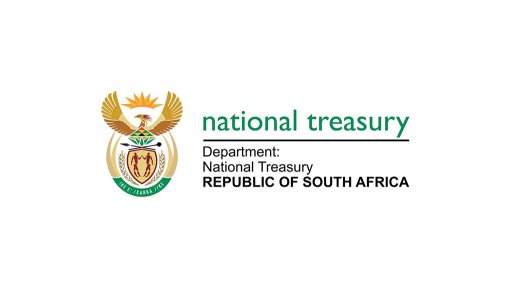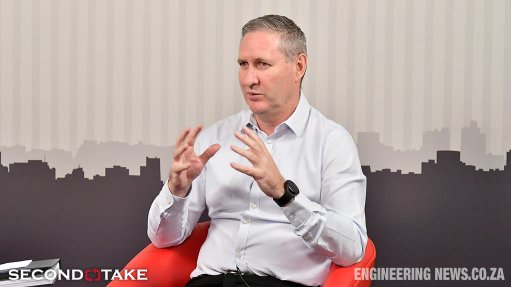May unveils British initiatives aimed at reducing Africa’s reliance on aid
British Prime Minister Theresa May used the recent G20 Summit in Hamburg, Germany, to announce a series of new British initiatives intended to reduce the reliance of African countries on aid and increase their long-term stability and prosperity. This was in line with a theme for the summit propounded by German Chancellor Angela Merkel.
The UK will provide £60-million to assist African countries to integrate with global financial markets through the construction of a strong and transparent financial sector. This will bring in more investment and stimulate financial innovation, increase the autonomy of the African banking sector and send finance to where it is most required. It will also, the British government noted, open the way for a strong partnership with the City of London, which, in turn, will create opportunities for the city to become the financial hub for Africa.
Further, £61-million will be provided to strengthen Tanzania’s trade infrastructure. This programme will include cooperating with the World Bank to increase the capacity of the Dar es Salaam port by almost 100%. Ethiopia will receive £35-million and Rwanda £11.8-million to assist both of them to attract foreign investment and so reduce their dependence on aid.
Another £30-million will be dedicated to assisting Somalia to restore its State structures and economy. This funding will be used to help recreate a functioning civil service to ensure sound economic management, as well as for improvements to water supply systems and roads (which could benefit as many as one-million people).
More generally, Britain is also setting up a new agency, the London Centre for Global Disaster Protection, “which will use world-leading UK expertise and innovation to help developing countries strengthen disaster planning and use insurance to provide more cost-effective, rapid and reliable finance in emergencies, such as the severe drought in East Africa,” stated 10 Downing Street in its press release. “This will reduce the need for expensive humanitarian aid, reassure private investors and help people rebuild their lives. Insurance protection built through this centre could provide £2-billion when crises hit to ensure that the high costs of disasters aren’t borne by people or businesses, trapping them in cycles of poverty, and its work to build insurance markets in developing countries could generate billions of pounds each year in additional national investment to boost economic development.”
“We must not forget that progress in Africa benefits the UK at home,” said May, on the margins of the summit. “Our international aid work is helping to build Britain’s trading partners for the future, creating real alternatives to mass migration, and enhancing our security, while simultaneously ensuring that we abide by our moral responsibility to meet the immediate humanitarian needs of some of the poorest people on earth. This is the future of aid, delivering value for money for the taxpayer.”
A central pillar of Germany’s presidency of the G20 has been the G20 Africa Partnership, and, in turn, a key element of this is the Compact with Africa. These were endorsed in the final ‘G20 Leaders’ Declaration: Shaping an Interconnected World’ at the end of the summit. “Our joint efforts will foster sustainable and inclusive economic growth and development in response to the needs and aspirations of African countries, contributing to create decent employment, particularly for women and youth, thus helping to address poverty and inequality as root causes of migration,” stated the declaration.
It cited the G20 Africa Partnership Conference (held in Berlin in June), which emphasised that “joint measures” were needed to support education and capacity building, strengthen “sustainable infrastructure” and improve the frameworks for investment. The declaration noted that Côte d’Ivoire, Ethiopia, Ghana, Morocco, Rwanda, Senegal and Tunisia had all proposed their priorities for ‘Investment Compacts’. “Led by the respective African countries, the African Development Bank, the IMF (International Monetary Fund) and the WBG (World Bank Group), as well as the G20 and other partners, these compacts aim to mobilise private investment as well as promote efficient use of public funding,” it said. But no further details were given.
Comments
Announcements
What's On
Subscribe to improve your user experience...
Option 1 (equivalent of R125 a month):
Receive a weekly copy of Creamer Media's Engineering News & Mining Weekly magazine
(print copy for those in South Africa and e-magazine for those outside of South Africa)
Receive daily email newsletters
Access to full search results
Access archive of magazine back copies
Access to Projects in Progress
Access to ONE Research Report of your choice in PDF format
Option 2 (equivalent of R375 a month):
All benefits from Option 1
PLUS
Access to Creamer Media's Research Channel Africa for ALL Research Reports, in PDF format, on various industrial and mining sectors
including Electricity; Water; Energy Transition; Hydrogen; Roads, Rail and Ports; Coal; Gold; Platinum; Battery Metals; etc.
Already a subscriber?
Forgotten your password?
Receive weekly copy of Creamer Media's Engineering News & Mining Weekly magazine (print copy for those in South Africa and e-magazine for those outside of South Africa)
➕
Recieve daily email newsletters
➕
Access to full search results
➕
Access archive of magazine back copies
➕
Access to Projects in Progress
➕
Access to ONE Research Report of your choice in PDF format
RESEARCH CHANNEL AFRICA
R4500 (equivalent of R375 a month)
SUBSCRIBEAll benefits from Option 1
➕
Access to Creamer Media's Research Channel Africa for ALL Research Reports on various industrial and mining sectors, in PDF format, including on:
Electricity
➕
Water
➕
Energy Transition
➕
Hydrogen
➕
Roads, Rail and Ports
➕
Coal
➕
Gold
➕
Platinum
➕
Battery Metals
➕
etc.
Receive all benefits from Option 1 or Option 2 delivered to numerous people at your company
➕
Multiple User names and Passwords for simultaneous log-ins
➕
Intranet integration access to all in your organisation


















